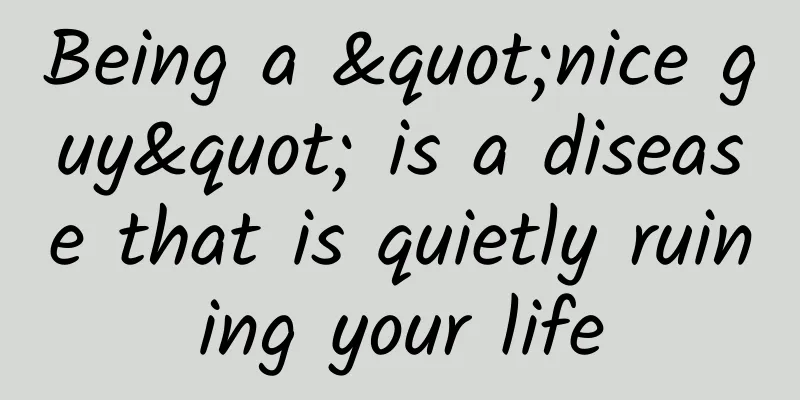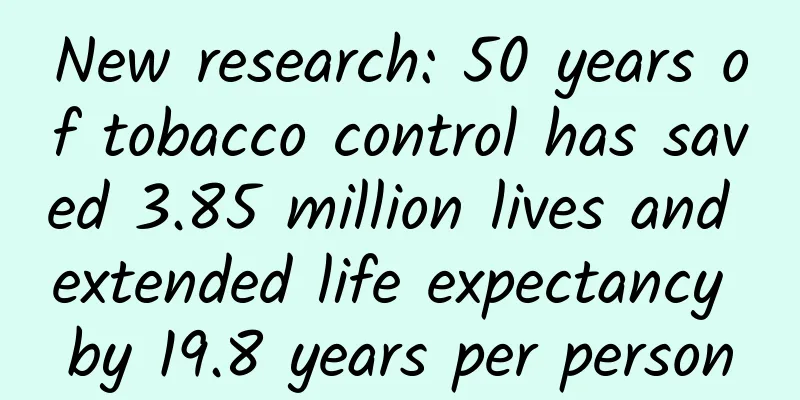Being a "nice guy" is a disease that is quietly ruining your life

|
In life, are you a "good guy" or a "nice guy"? Although there is only one letter difference between these two words, their meanings are very different. A "good person" may often help others, but they will distinguish right from wrong, have principles and bottom lines, and will not do something "harmful" to please others. But "nice guys" are different. In order not to offend others, they are usually forced to become smooth in dealing with others. They only pursue superficial harmony and will sacrifice their own interests to please others. This behavior is actually a manifestation of neurosis, which can be called "people-pleasing disorder." 01 What is people-pleasing? Tuchong Creative People-pleasing disorder is a difficult psychological disorder to define and is not a formal psychiatric diagnosis. Patients have some behavioral patterns that compel themselves to please others, but unlike obsessive-compulsive disorder, people-pleasing disorder is not a personality disorder, but rather a manifestation similar to addiction. These people are not happy in their hearts. Although they know that it is not good to please and accommodate others blindly, they still cannot control their distorted cognition and behavior patterns - they are worried about conflicts and offending others, so they use pleasing and accommodating methods to gain others' favor. This is often gradually accumulated in childhood. According to the survey, people-pleasing syndrome is more common in women. Patients always prioritize the needs of others and act like "nice guys" all day long, but often neglect and wrong themselves, and bear a lot of unnecessary pressure for no reason. These pressures will eventually lead to many physical and mental symptoms, such as headaches, insomnia, poor appetite and other physiological symptoms, as well as negative emotions and some psychological symptoms. People-pleasing disorder is not a mental illness, but is somewhat similar to addiction. American clinical psychologist Dr. Harriet Black believes that people with people-pleasing disorder are not just "nice guys". When faced with requests from others, they refuse in their hearts but cannot say it out loud, so they agree to everything. This is because they are afraid of getting others angry and worried about conflicts, so they force themselves to appear friendly in order to please others. However, behind these friendly appearances, there is actually dissatisfaction and resentment. 02 Three forms of people-pleasing In her book People-Pleasing, American psychologist Harriet Black divides people-pleasing into three dimensions. Correspondingly, we can draw three portraits of people with People-Pleasing. 1. Cognitive "nice people". This type of "pleaser" is always trying to make everyone like him, because he believes that the basis for defining whether he is good or not is how much he has done for others. He keeps telling himself that he should conform to others and show his better side, for fear of receiving negative feedback or evaluation from others. Such behavior actually does not bring positive effects to these people’s interpersonal relationships. Others usually do not recognize these people’s pleasing behaviors, nor do they become friendly because of these people’s pleasing behaviors. Therefore, while the “pleasers” feel particularly disappointed and resentful, others will also feel suffocated by these airtight pleasing behaviors. Normal, good relationships should be relaxed, not forced. Being flattered in a situation where you don’t want to be flattered can make people feel very uncomfortable, but “pleasers” often don’t realize this. 2. Habitual “nice people”. This type of “pleaser” is sleepy and busy all day long. Because they cannot say no, they are forced to sacrifice their own needs to take care of the needs of others. They may not be willing in their hearts, but they always work hard and never complain. They rarely assign work to others, but often take on other people’s work and undertake workloads beyond their own capabilities. They often impose unnecessary pressure on themselves. 3. Emotionally avoidant “nice people”. This type of “pleaser” is always anxious when dealing with others, fearing conflicts and confrontations. Once a disagreement arises, they will give up control in order to achieve peace. They please others in order to eliminate their own negative emotions of fear and anxiety. However, avoiding is not a solution to problems. Giving up control will not only fail to reduce fear, but will increase it[1]. These are the three dimensions of pleasers: cognition, behavior, and emotion. In fact, these three dimensions do not necessarily correspond to three different "people-pleasing syndromes." Every people-pleaser will have problems in these three dimensions to a greater or lesser extent. 03 How can people pleasers change? Tuchong Creative Many "nice guys" are not without opinions, but they dare not express their opinions easily, and they are anxious and afraid of loss and potential losses. Therefore, "nice guys" are not confident in themselves at heart, and do not believe that they can get what they want even if they really have a position. But is it really the safest to always "play it safe"? Many times, it is not that you are safe if you do not actively express your opinions and positions. Not expressing is also an attitude. Therefore, only by identifying with yourself, accepting yourself, and seeing your own strength from the heart can you better express your attitude and principles and not need to rely on others. Therefore, we must learn to discover the truly "good" things in ourselves, actively cultivate self-confidence, and be a better self. We can restore our self-confidence by experiencing the feeling of success through easily achievable goals. At the same time, we must also identify our own problems and not think that we are an "all-rounder" who can do everything the best. Only by accepting our own shortcomings can we know how to love ourselves. Finally, you must have the courage to express your needs and say "no". Don't worry too much about the consequences of rejecting others, but learn to defend your own interests. Dare to say "no" to yourself, and you will also dare to say "no" to others. References [1] Xiang Ruiyang. “Good-natured man” is a disease. Public Health, 2019, 11:76-77. Author | Head of Xin Ran’s Xintian Wanmu Studio Review | Tang Qin Deputy Secretary-General, Researcher, Science Popularization Expert Committee of Chinese Medical Association Submitted by: Chinese Medical Association The pictures in this article are from the copyright gallery and are not authorized for reproduction. |
<<: Be careful of burns if you use these "winter magic tools" incorrectly!
>>: Why do football players' butts look so perky?
Recommend
Custom menu management-custom menu creation interface
Currently, a custom menu can contain up to 3 firs...
It's "weight loss season" again! Qin Hao's weight loss diet is exposed. Have you found a scientific way to lose weight?
Can ordinary people imitate Qin Hao's weight ...
What to do if you have too much lucky money? Do you know how to withdraw money from WeChat without handling fee?
[[382126]] The long-awaited Spring Festival holid...
Alibaba and Skyworth jointly release smart TVs to join Alibaba Cloud system
[September 10 news] Previously, Alibaba launched ...
Gaomi SEO Training: What are the various variations of words in search engines?
What are the various variations of words in searc...
A collection of brand New Year's Eve cases, Durex's classics are hard to surpass!
2015 has passed and 2016 has begun. The feeling o...
10 new marketing methodologies for brands!
New brands are ushering in a new round of growth ...
It's been more than a decade! Why can't I control my hands when Double Eleven comes?
A few days ago, the Double Eleven pre-sale starte...
Simple-side-drawer implements the side menu
introduce Implement the drawer view (slide out me...
How to operate Weibo? Sharing of Weibo operation ideas
Recently, many people have asked me how to operat...
As the regional agent of Xindong Takeaway, what opportunities will Xindong Takeaway provide to ordinary people?
As Meituan Takeout has become the dominant player...
Who is the strongest king? Entry-level 120GB SSD competition
We once predicted that SSD would replace HDD and ...
How to make users addicted to your product? 5 steps!
"Information overload" is the current s...
Microbes: We are the engine of soil material circulation
Microorganisms are everywhere in nature, and soil...
Forget cyanide, it is the poison of detective novels
London in the late 19th century was a place full ...









